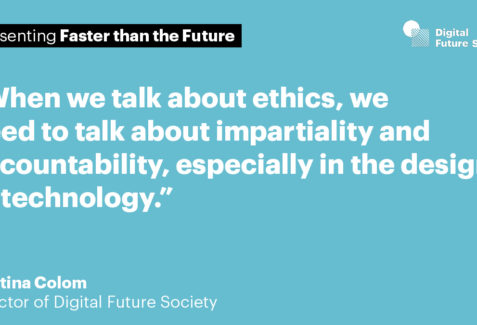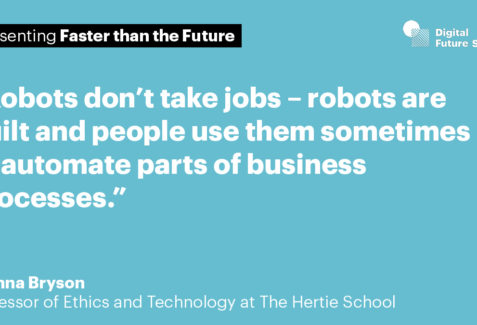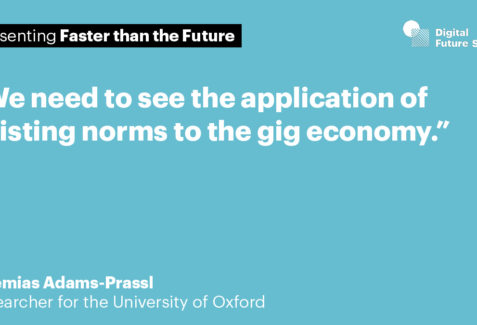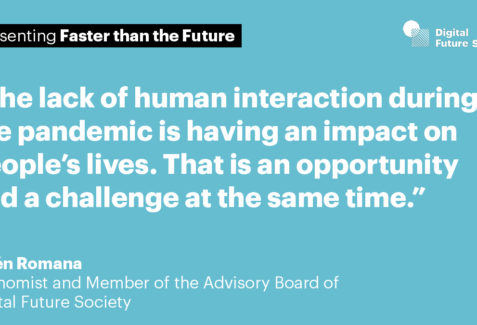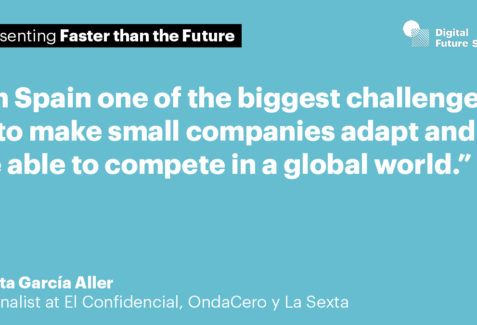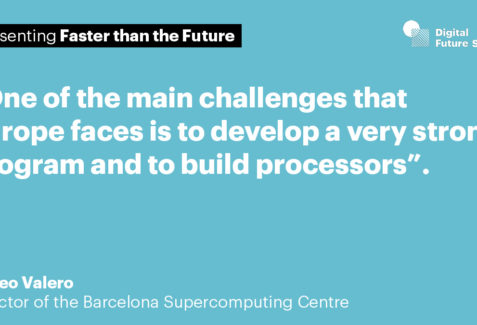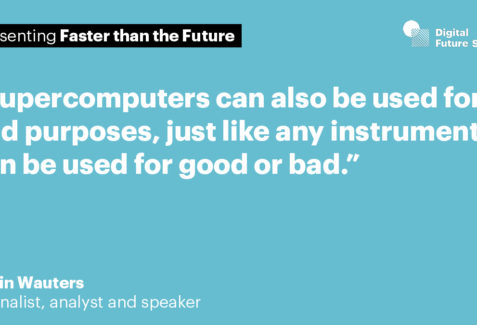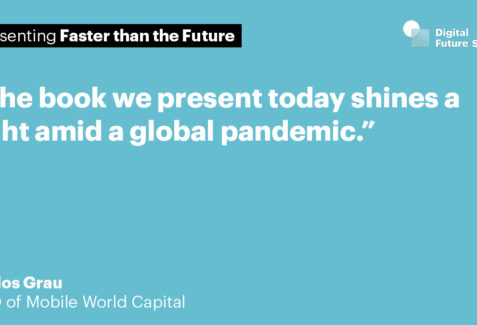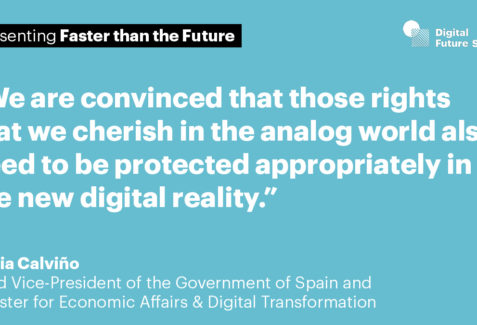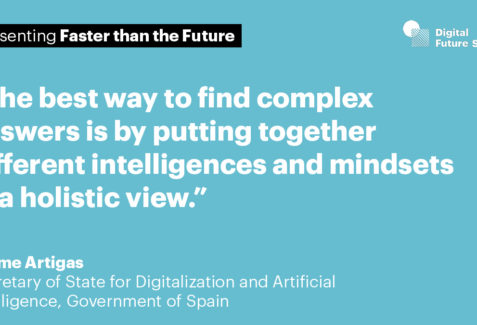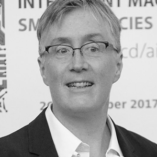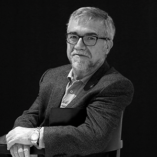Feb 4, 2021 -
Feb 4, 2021
11:00H -
00:20H
Digital Future Society launches a multifaceted book that analyses the great challenges of this exponential and accelerated digital revolution: the transformation of work, the ethics of artificial intelligence, the massive use of data, etc.
10 journalists from international media and 10 renowned academics specialized in technology and its social impact have been selected to collaborate. The result is a book composed of ten articles, with a direct and journalistic style, that reflects on some of the great social and economic challenges that accompany the digital revolution.
10 journalists from international media and 10 renowned academics specialized in technology and its social impact have been selected to collaborate. The result is a book composed of ten articles, with a direct and journalistic style, that reflects on some of the great social and economic challenges that accompany the digital revolution.
Outputs
Programme
Speakers











